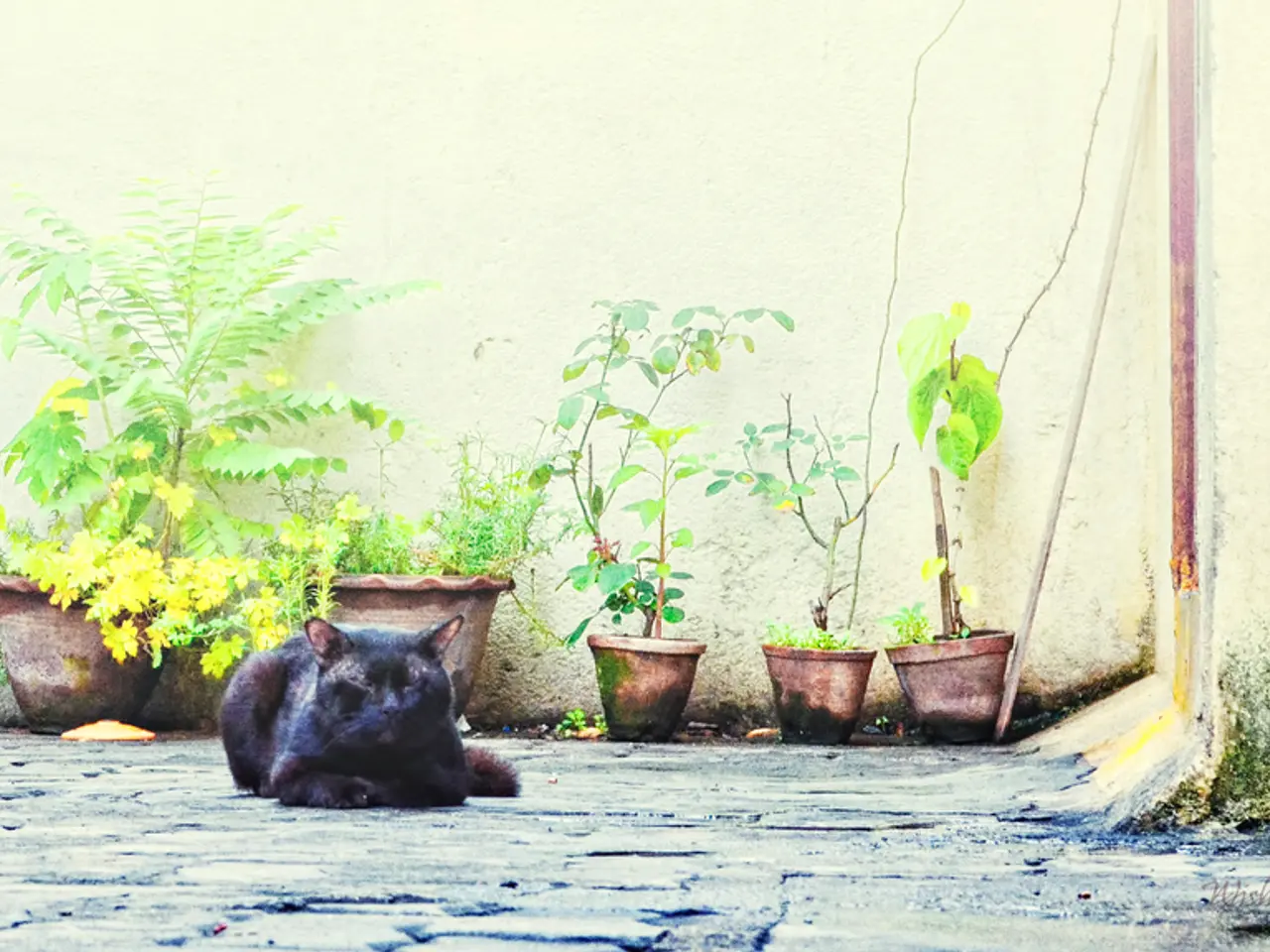Cats should avoid eating grapes and raisins as these fruits are harmful to their health.
Grapes and raisins pose a significant risk to cats, as they can potentially cause serious health issues, including kidney failure. While the exact toxic compound and toxic dose in cats are unknown, even small amounts can be harmful and potentially fatal.
If your cat has ingested grapes or raisins, immediate action is crucial. Contact your veterinarian or an animal poison control centre right away. Fast action can help prevent complications and flush out toxins from your pet's system.
Symptoms of grape or raisin poisoning in cats typically appear within 48 hours and may include vomiting, diarrhea, abdominal pain, weakness and lethargy, loss of appetite, changes in thirst and urination, neurological signs like wobbliness and muscle tremors. In severe cases, kidney failure may occur, leading to frequent urination or an inability to urinate.
Treatment for grape or raisin poisoning in cats is similar to the protocols used for dogs. Veterinary care is essential and involves prompt evaluation and monitoring, supportive care such as intravenous fluids to prevent or treat kidney damage, inducing vomiting if ingestion was recent, blood work to monitor kidney function and electrolytes, and hospitalisation in severe cases for close observation and treatment of complications.
Since the toxic dose and mechanism in cats are not clearly defined, veterinary experts recommend taking any ingestion of grapes or raisins by cats seriously and seeking emergency veterinary care immediately.
To keep your cat safe, it's best to keep grapes out of reach. Table scraps containing grapes, seeds, or raisins should be avoided in a cat's diet. Cats are obligate carnivores and require a meat-based diet to thrive. Treats for cats should align with a cat's diet, such as freeze-dried chicken, commercial cat treats, or vet-approved snacks.
Remember, common foods like dairy products, white chocolate, and other human foods can also be harmful to cats. Always consult with your veterinarian before introducing new foods into your cat's diet.
This article was created in conjunction with AI technology, fact-checked, and edited by a website editor. Always consult with a professional for advice tailored to your pet's specific needs.
- Incorporating health-and-wellness practices extends beyond humans; it's crucial to be aware of potential risks to pets, such as consuming grapes or raisins, which can lead to health issues like kidney failure.
- Adopting a technology-based lifestyle can aid in pet care; for instance, keeping up with recent scientific findings regarding pet safety, such as the risks posed by grapes and raisins to cats.
- Maintaining a pet's holistic lifestyle involves ensuring they follow a proper diet; specifically, cats being obligate carnivores, requiring a meat-based diet, and avoidance of potentially harmful foods like grapes, seeds, and raisins.




